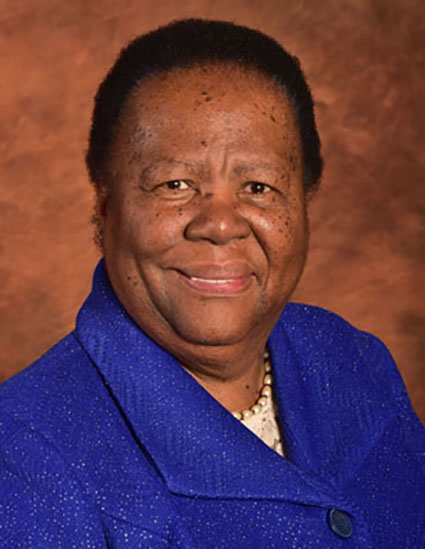JOHANNESBURG, (Reuters) – A deal to expand the BRICS group of leading developing countries appeared stuck in eleventh hour negotiations at a leaders summit yesterday, threatening to undermine the bloc’s ambition to give the “Global South” more clout in world affairs.
Agreement to expand BRICS – currently Brazil, Russia, India, China and South Africa – could allow dozens of interested nations to seek admission as Beijing and Moscow push to forge it into a viable counterweight to the West.
The debate over enlargement has topped the agenda at the three-day summit taking place in Johannesburg. And while all BRICS members have publicly expressed support for growing the bloc, there were divisions among the leaders over how much and how quickly.
Summit host South Africa’s foreign minister Naledi Pandor speaking yesterday said BRICS leaders had agreed on mechanisms for considering new members.
“We have agreed on the matter of expansion,” she told a radio station run by her ministry.
“We have a document that we’ve adopted which sets out guidelines and principles, processes for considering countries that wish to become members of BRICS…That’s very positive.”
However, a BRICS member country official with direct knowledge of the discussions told Reuters that the leaders had not yet signed a finalised admission framework.
An agreement had been meant to be adopted following a plenary session earlier on Wednesday, but the source said it had been delayed after Indian Prime Minister Narendra Modi introduced new admission criteria.
Asked about the delay, an Indian official aware of the details of the talks told Reuters late on Wednesday that the discussion were continuing.
“Yesterday … India pushed for consensus on criteria as well as the issue of (candidate) names. There was a broad understanding,” he said.
BRICS countries have economies vastly different in scale and governments with often divergent foreign policy goals, a complicating factor for a bloc whose consensus decision-making model gives each member a de facto veto.
Bloc heavyweight China has long called for an expansion of BRICS as a means of fostering a multipolar world order to challenge Western dominance.
“The world … has entered a new period of turbulence and transformation,” China’s President Xi Jinping said on Wednesday. “We, the BRICS countries, should always bear in mind our founding purpose of strengthening ourselves through unity.”
Russia’s President Vladimir Putin, who is wanted under an international arrest warrant for alleged war crimes in Ukraine and is attending the summit remotely, is keen to show Western powers he still has friends.
Brazil and India, in contrast, have both been forging closer ties with the West.
Brazil’s President Luiz Inacio Lula da Silva on Tuesday rejected the idea the bloc should seek to rival the U.S. and Group of Seven wealthy economies.
The BRICS country official said that admission criteria India’s Modi proposed included requiring members not be the target of international sanctions, ruling out potential candidates Iran and Venezuela.
Modi was also pushing for a minimum per capital GDP requirement.
“These are the things Modi brought in today,” the official said. “So they are becoming a little bit of a spoiler.”
More than 40 countries have expressed interest in joining BRICS, say South African officials, and 22 have formally asked to be admitted.
They represent a disparate pool of potential candidates – from Iran to Argentina – motivated largely by a desire to level a global playing field many consider rigged against them and attracted by BRICS’ promise to rebalance the global order.
A number of prospective candidates are sending delegations to Johannesburg for meetings on Thursday – the last day of the summit – with the bloc’s leaders.
Though home to about 40% of the world’s population and a quarter of global GDP, BRICS members’ failure to settle on a coherent vision for the bloc has long left it punching below its weight as a global political and economic player.
White House national security advisor Jake Sullivan said on Tuesday that, due to the BRICS countries’ divergence of views on critical issues, he did not see the bloc turning into a geopolitical rival of the United States.
But moves to expand the bloc and push its New Development Bank as an alternative to established multilateral lenders are raising concern among some in the West.
Werner Hoyer, the head of European Investment Bank, warned Western governments on Wednesday that they were in danger of losing the confidence of the “Global South”, unless they urgently intensified their own support efforts for poorer countries.









